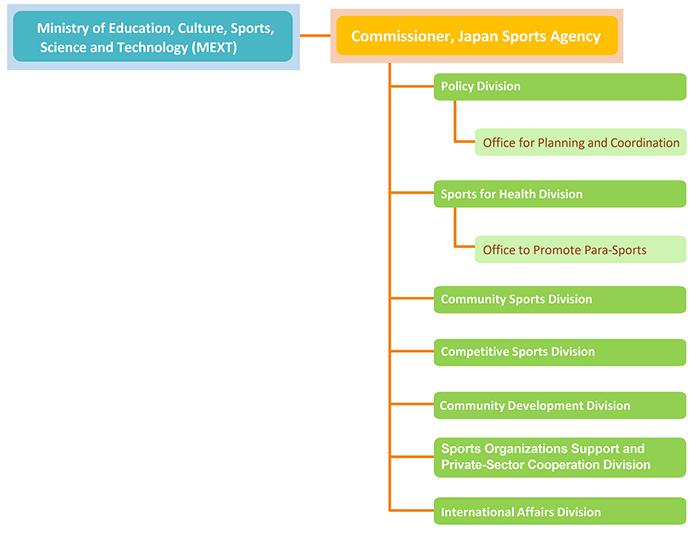Japan Sports Agency to Harness AI Technology to Enhance Athlete Performance
In a groundbreaking move that underscores the growing intersection of technology and sports, the Japan Sports Agency has announced plans to integrate artificial intelligence (AI) into its training and growth programs for athletes. This initiative aims to bolster Japan’s competitiveness on the global sports stage, particularly in light of upcoming international events such as the Olympic Games. By leveraging advanced data analytics and machine learning, the agency seeks to provide athletes with personalized training regimens, injury prevention strategies, and performance insights that can lead to better outcomes. As the sports community worldwide increasingly turns to innovative solutions, Japan’s initiative not onyl represents a important investment in the nation’s athletic future but also sets a precedent for other countries looking to enhance their sports programs thru technology.
Japan Sports Agency Embraces AI to Enhance Athlete Performance
The Japan Sports Agency is set to revolutionize its approach to athlete performance by integrating advanced artificial intelligence technologies into training and analysis. By harnessing the power of AI, the agency aims to offer tailored training regimens that not only enhance physical capabilities but also optimize mental resilience. The initiative is expected to provide athletes with real-time insights, allowing them to refine their techniques, assess performance metrics, and make data-driven decisions on the field. Key aspects of the strategy include:
- Personalized Training Programs: Algorithms will analyze individual athlete data to create customized workouts.
- Performance Monitoring: Continuous tracking of health metrics will help in adjusting training loads efficiently.
- Injury Prevention: AI will identify patterns that coudl lead to injuries, facilitating preventive measures.
Additionally,the collaboration with tech firms will enable the implementation of machine learning models that predict outcomes based on past data. A pilot program will focus on specific sports, providing a robust framework for expanding the initiative across various disciplines. Insights gained from AI analyses will enhance support for coaches and trainers, ensuring that they remain informed and proactive in their strategies. The anticipated results from this revolutionary application of technology could redefine the landscape of training methodologies in Japan’s sporting culture.
| Benefits of AI Integration | Expected Outcomes |
|---|---|
| Enhanced Training Efficiency | Improved athlete performance metrics |
| Data-Driven Strategies | Reduced injury rates |
| Real-Time Feedback | Increased athlete confidence |
Integrating artificial Intelligence in Training Programs for Optimal Results
The Japan Sports Agency has embarked on a groundbreaking initiative to integrate artificial intelligence into its athlete training programs, aiming to maximize performance and enhance overall athlete development. This innovative approach leverages cutting-edge data analytics and machine learning algorithms to create tailored training regimens that address the unique needs of each athlete. By utilizing AI, coaches can gain insights into athletes’ physiological responses to training, allowing for more precise adjustments in workout intensity, recovery protocols, and nutrition plans.This personalized methodology ensures that athletes not only achieve their peak performance but also maintain their health and reduce the risk of injuries.
Key benefits of this AI-driven training program include:
- Enhanced performance Tracking: Continuous monitoring of athletes’ progress provides real-time feedback, enabling coaches to make informed decisions.
- Data-Driven Decision Making: AI tools analyze vast amounts of data,extracting patterns and trends that human coaches might miss.
- injury Prevention: Predictive analytics help identify potential injury risks, allowing for proactive measures to be put in place.
- Optimized Recovery Strategies: Personalized recovery plans can be formulated based on individual athlete metrics, improving overall recovery time.
This initiative reflects a broader trend in sports,where technology and data analysis play an increasingly vital role in shaping training methodologies. With the Japan Sports Agency leading the charge, the integration of AI into athlete training could set a new standard for sporting excellence across the region.
Future Prospects: Recommendations for Leveraging Technology in Sports Development
As the Japan Sports Agency embarks on its initiative to integrate artificial intelligence into athlete development, several areas emerge where technology can play a transformative role. Athletic performance analysis is one of the most promising aspects; by utilizing AI, coaches can gain deeper insights into players’ strengths and weaknesses through the evaluation of data collected during training sessions and competitions. Implementing systems that leverage machine learning will not only enhance tactical planning but also allow for personalized training regimens that cater to individual athlete needs.
Additionally, enhancing injury prevention and rehabilitation practices through technology is essential. The integration of wearables and AI-driven analytics can provide real-time data on physical strain and biomechanics,alerting trainers to potential risks before they result in injury. Furthermore, the use of virtual reality (VR) and augmented reality (AR) can simulate competitive environments for mental training, preparing athletes psychologically for high-pressure situations. The collaborative efforts among scientists, technologists, and sports professionals can facilitate a complete support system that optimizes both athlete performance and overall athletic health.
to sum up
the Japan Sports Agency’s initiative to integrate artificial intelligence into athlete development marks a significant milestone in the evolution of sports training and performance enhancement. By leveraging cutting-edge technology, the agency aims not only to elevate the capabilities of individual athletes but also to propel Japan’s sporting landscape to new heights on the international stage. As this pioneering project unfolds, it will be crucial to monitor its impact on athletes’ training regimens, mental wellness, and overall performance. With Japan’s commitment to innovation in sports, the outcomes of this initiative could set a benchmark for countries worldwide, reshaping the future of athlete support through technology. The journey has just begun, and all eyes will be on Japan as it embraces the fusion of sports and artificial intelligence.


